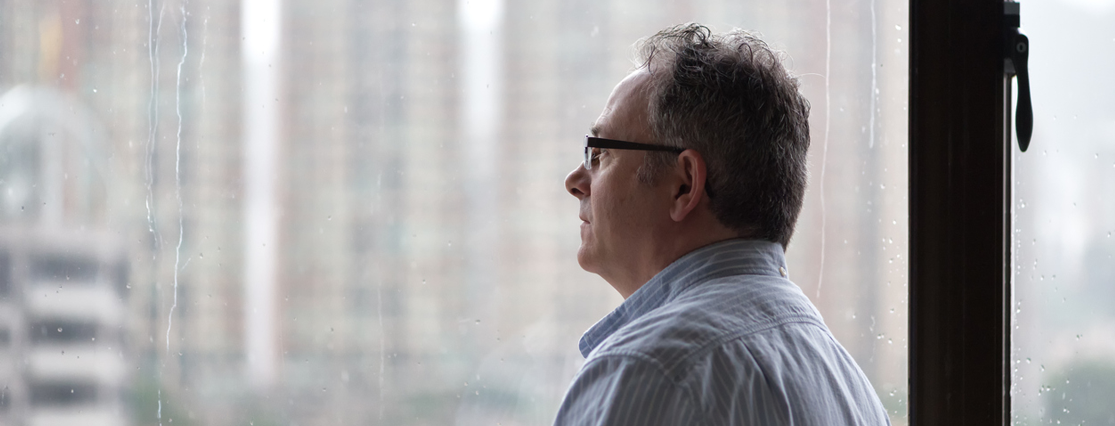WHO's guidelines for mental health during COVID-19
The COVID-19 pandemic is unlike anything the global community has faced before. Your patients and your colleagues are likely struggling with feelings of fear and anxiety — and you may be too. The World Health Organization (WHO) has some guidelines to help.
WHO has released “Mental health and psychosocial considerations during the COVID-19 outbreak” with advice and guidelines to support mental health during this public health crisis. We've recapped WHO's key messages for health care workers, caregivers, and those in isolation.
Messages for health care workers
WHO encourages health care workers to remember that feelings of stress and anxiety are normal and not an indication of weakness or incompetence. Mental health is just as important as your physical health, and one often influences the other. For this reason, do your best take care of your body during this time. Try to get rest between shifts, eat well, engage in some exercise, and keep in contact with your family and friends. WHO advises that you employ coping strategies you’ve used in the past because, "[y]ou are the person most likely to know how you can de-stress and you should not be hesitant in keeping yourself psychologically well. This is not a sprint; it’s a marathon.”
COVID-19 stigma is a rapidly-emerging social issue that health care workers may experience. If you can, talk to your friends, family, and colleagues for support. Your colleagues in particular are likely to be experiencing similar issues, and talking with them can help you feel less alone.
Messages for caregivers
You and your patients may be caring for children, elder loved ones, or people with underlying health conditions during the pandemic. It’s important to make sure these groups are cared for in a way that helps them stay both healthy and happy.
Those with children should provide a safe and supportive environment in which children can express their emotions. Kids need healthy ways to express any anger, fear, or sadness they have during this time. This could be a creative pursuit, like drawing or playing. Children should also stay close to their family if possible, and have regular contact with family through phone or video calls. This helps instill feelings of safety and stability. Depending on their age, children may be more demanding of their guardian’s attention or have questions about COVID-19. Guardians should answer these questions in age-appropriate ways and address the child’s anxieties together. The calmer guardians are about the situation, the calmer and happier their children will be as well.
The elderly, particularly those with cognitive decline/dementia, may be more stressed than usual during this crisis. They need support from their family as well as any health professionals caring for them. If you care for an older person, share simple facts about how to reduce COVID-19 transmission with them. Be patient and concise when delivering this information, and do it more than once if necessary. Family and other support networks can help older people practice preventative measures such as hand washing.
Quarantine and self-isolation are especially important for those with underlying health conditions, so they may be quarantining for longer than others. This may cause increased feelings of anxiety or loneliness. Encourage these patients to find simple daily exercises to promote mobility and reduce boredom.
Children, the elderly and people with chronic conditions will all benefit from establishing routines to provide stability and prevent boredom. Routines should include daily physical activity and contact with loved ones (via phone, email, social media, or video calls). Exercise promotes mental health, as does contact with family and friends.
Messages for those in isolation
Your patients in isolation may be feeling especially stressed or bored. They should pay attention to how they feel and do activities they enjoy, as well as activities that keep them healthy, like exercising and getting enough sleep. They should also make time to connect with family and friends each day.
Messages for the general population
Patients and providers can practice empathy and compassion towards others during this time of crisis. Avoid the use of stigmatizing language such as “COVID-19 victims” or “the diseased." Instead use terms like “people who have COVID-19” or “people being treated for COVID-19.”
Staying informed on the COVID-19 crisis is important, but WHO recommends that we avoid looking at the news too often, as this can cause additional anxiety. Try looking up COVID-19 information at specific times each day. Your patients should also prioritize practical guidance and informational updates from reliable sources over sensational media headlines and unfounded rumors. Look out for and share positive and hopeful stories regarding COVID-19, such as stories of those who have recovered from it.
